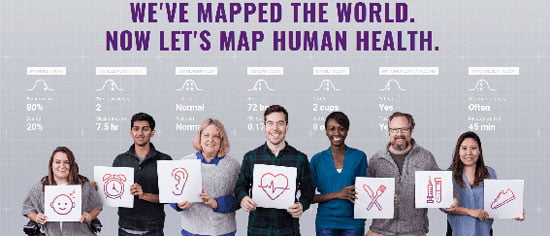
The company Verily Life Sciences emerged from the renaming of Google Life Sciences in late 2015. In addition to its central participation in the Precision Medicine Initiative, Verily is also running its own related project called “Baseline.” Under this project, and in collaboration with Duke University and Stanford Medicine, data will be collected from 10,000 individuals who will participate for payment.
In addition to DNA and microbiome analyses, the data collection covers information about the psychological and socio-economic status as well as the place of origin of the participants. Funding for the project and any profits from it will come from the commercial exploitation of the data, mainly by selling it to pharmaceutical companies. With the cost per participant estimated at $50,000–$100,000, Verily will have to manage to collect more than $1 billion from the sale of the data.
Not difficult at all, since a corporate subscription for data access can cost hundreds of millions of dollars. For the collection of much of the data, portable devices and sensors with their corresponding applications will be used.
And so the terms and conditions for the use and commercial exploitation of participants’ data will be hidden in the fine print with a single “tap” on “I agree”—with no mention of the added value.
